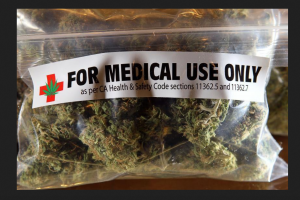Current treatments of Parkinson disease (PD) and parkinsonism still provide suboptimal effects, especially regarding the patients’ quality of life. This has led to the search for alternative and often unconventional therapies, such as medical cannabis for Parkinson’s Disease (PD).
The use of medical cannabis (MC) is controversial. Support for its benefits is based on small clinical series. The aim of this study, published in Clinical Neuropharmacology, is to report the results of a standardized interview study that retrospectively assessed the effects of MC on PD symptoms and its adverse effects in patients treated for at least 3 months.
Medical Cannabis for Parkinson’s Disease
Clinical trials on the effects of MC for PD are limited and report contrasting results. However, there is a  wealth and steadily growing body of information in the nonmedical literature on the positive effects of cannabis products on motor symptoms (tremor, rigidity, bradykinesia) as well as on nonmotor symptoms (pain, sleep, depression, anxiety, nausea, and vomiting) and quality of life. The widely discussed adverse effects of standard PD medications encourage patients with PD and physicians to try “alternative natural treatments,” including the attractive option of medical cannabis (MC).
wealth and steadily growing body of information in the nonmedical literature on the positive effects of cannabis products on motor symptoms (tremor, rigidity, bradykinesia) as well as on nonmotor symptoms (pain, sleep, depression, anxiety, nausea, and vomiting) and quality of life. The widely discussed adverse effects of standard PD medications encourage patients with PD and physicians to try “alternative natural treatments,” including the attractive option of medical cannabis (MC).
NOTE: This study was done in Israel, where the use of Cannabis sativa for medical purposes had been permitted since 1991. It has expanded significantly over the past 5 to 7 years, most likely because of the increased awareness and demand of patients who are exposed to it through social media and the internet, and whose doctors recommend it. However, it is strictly regulated by the Israeli Ministry of Health (MoH), and each patient requires personal permission to use MC after the inspection of each individual case. Selected growers are allowed to produce Cannabis sativa for medical use.
Given the controversial nature of MC and variability in its legality, this article is only available to registered users on Today’s Practitioner. This added step, though inconvenient, allows us to limit it’s readership to practicing medical professionals. If you have not already registered for our content, please do so now to gain access to study results.
To gain access to this article and the rest of our extensive database of full-text articles, please register below or log in here.





